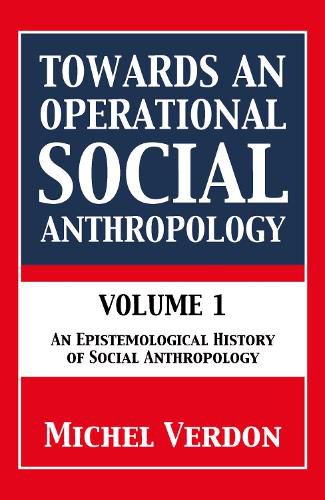Readings Newsletter
Become a Readings Member to make your shopping experience even easier.
Sign in or sign up for free!
You’re not far away from qualifying for FREE standard shipping within Australia
You’ve qualified for FREE standard shipping within Australia
The cart is loading…






This title is printed to order. This book may have been self-published. If so, we cannot guarantee the quality of the content. In the main most books will have gone through the editing process however some may not. We therefore suggest that you be aware of this before ordering this book. If in doubt check either the author or publisher’s details as we are unable to accept any returns unless they are faulty. Please contact us if you have any questions.
Anthropology's original aim, that of Maine and Morgan in the second half of the nineteenth-century, was to explain social variability. Behind that variability, anthropologists searched for regularities that a theory would explain. It was thus both comparative and positivist (aiming to be scientific). The first theory to emerge was evolutionism. It was soon followed by functional structuralism, structuralism and all the other 'isms' that came after. In the final analysis, unlike scientific theories, all these 'theories' did not supplant one another but merely agglutinated. The original project of a comparative and positivist anthropology thus completely failed, and the new gurus explain it by the very nature of anthropology's subject, human beings in society, which they claim are not amenable to scientific discourse.
In this first of two books, Professor Michel Verdon rejects this defeatist explanation. To him, the failure does not stem from anthropology's 'objects' but from the knowing subject. The explanation lies in the process of knowing; it is epistemological, and he finds the ultimate reason in the 'cosmology' that underlies all theories, and that no one has hitherto explored. This enables him completely to upturn the traditional wisdom: it is this implicit cosmology that radically hinders any conceptual rigour in the study of social organization since it defines groups in a way that makes them ontologically variable. In the light of this unique diagnosis he can define a new language, which he labels 'operational', that yields rigourous comparisons leading to refutable and rectifiable theories. In a second book that will soon follow, he applies this language to a number of ethnographies and draws from them astonishing conclusions about societies traditionally studied by anthropology.
$9.00 standard shipping within Australia
FREE standard shipping within Australia for orders over $100.00
Express & International shipping calculated at checkout
This title is printed to order. This book may have been self-published. If so, we cannot guarantee the quality of the content. In the main most books will have gone through the editing process however some may not. We therefore suggest that you be aware of this before ordering this book. If in doubt check either the author or publisher’s details as we are unable to accept any returns unless they are faulty. Please contact us if you have any questions.
Anthropology's original aim, that of Maine and Morgan in the second half of the nineteenth-century, was to explain social variability. Behind that variability, anthropologists searched for regularities that a theory would explain. It was thus both comparative and positivist (aiming to be scientific). The first theory to emerge was evolutionism. It was soon followed by functional structuralism, structuralism and all the other 'isms' that came after. In the final analysis, unlike scientific theories, all these 'theories' did not supplant one another but merely agglutinated. The original project of a comparative and positivist anthropology thus completely failed, and the new gurus explain it by the very nature of anthropology's subject, human beings in society, which they claim are not amenable to scientific discourse.
In this first of two books, Professor Michel Verdon rejects this defeatist explanation. To him, the failure does not stem from anthropology's 'objects' but from the knowing subject. The explanation lies in the process of knowing; it is epistemological, and he finds the ultimate reason in the 'cosmology' that underlies all theories, and that no one has hitherto explored. This enables him completely to upturn the traditional wisdom: it is this implicit cosmology that radically hinders any conceptual rigour in the study of social organization since it defines groups in a way that makes them ontologically variable. In the light of this unique diagnosis he can define a new language, which he labels 'operational', that yields rigourous comparisons leading to refutable and rectifiable theories. In a second book that will soon follow, he applies this language to a number of ethnographies and draws from them astonishing conclusions about societies traditionally studied by anthropology.